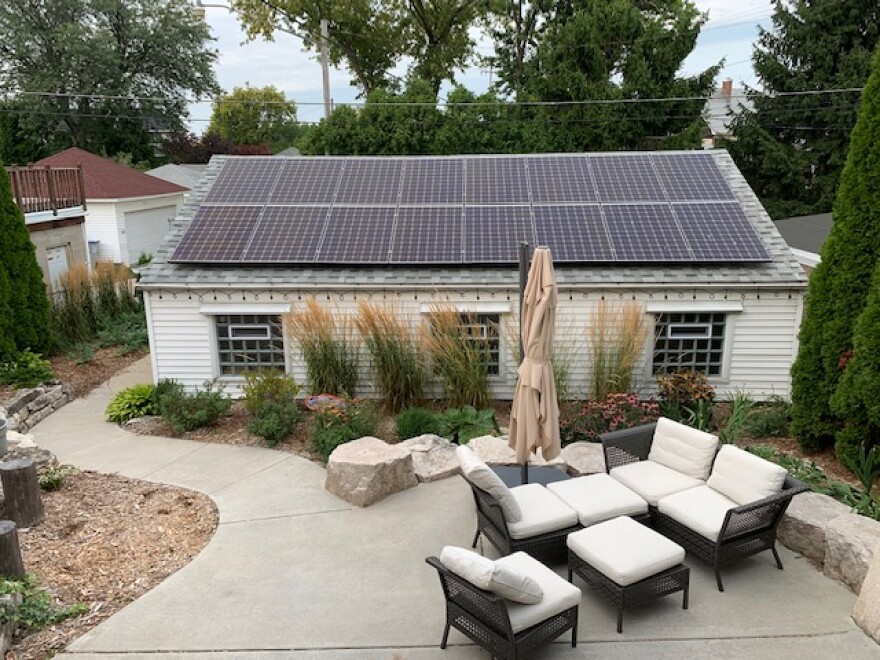Grow Solar Greater Milwaukee allows homeowners and businesses to pool their purchasing power to buy solar panels at a lower cost. The group recently reached its first goal, triggering a rebate for all of its participants.
Earlier this week, a group of people gathered in a village of Bayside parking lot to talk about the program.
Peter Murphy is the solar program director for Midwest Renewable Energy Association (MREA) and says the group buy program was started in 2013. In the early days, he would go different neighborhoods in Milwaukee trying to organize residents to purchase solar at reduced costs.
Now Murphy says the program has expanded and is working directly with villages north of Milwaukee. He explains that the more people who participate in the program, the lower the cost is for everyone.
“At each of several benchmarks, there is a price break so there’s this competitive process [that] got us lower than market price to begin with and we just hit 50 kilowatts on nine or 10 properties,” he says. “That triggers a price break for everyone.”

Bayside has already shown its interest in solar projects, the village had ARCH Electric install solar panels on the Department of Public Works building. ARCH Electric has also been chosen as the solar provider for the Grow Solar Greater Milwaukee program.
Leah Hofer is the assistant to the village manager of Bayside and says the panels are already helping the building reduce its carbon footprint.
“We have an app that tracks the effects that [the solar panels] are having. We’ve planted the equivalent of 220 trees and have saved over 29,000 pounds of carbon dioxide emissions so far,” she says.
In Bayside, MREA has held meetings called Solar Power Hours to help educated people and answer the questions they have about adding solar panels to their house.
Marta Monti is the solar program manager for MREA and runs the events. “We really try to educate folks and take this complex topic, or topic that can be complex, and really give everyone the tools that they need to make smart decisions about their energy future,” she says.
Monti says she tells people that adding solar panels doesn’t just offer the opportunity to help reduce carbon emissions but allows residents to become more energy independent. She also helps people figure out technical questions like if a property has enough sunlight to sustain solar panels or how many panels can fit on a roof.
Elizabeth Hittman is the environmental sustainability program coordinator for the city of Milwaukee. She says the city has had a solar program since 2009 and has worked hard to help people throughout the city see solar as an option.
“People are really, super interested in solar and the cost has come down so much in the last decade and I think they’re just really waiting for the opportunity learn about it,” she says.
Angie Kochanski is a residential solar experience manager for ARCH Electric. She started at the company in 2016 when it had around 15 employees, now she says the company employees over 100.
“Our team is just helping interested folks that are looking to evaluate the potential for solar on their home or business, so we help them through that process, get them a shade analysis if it’s necessary, a proposal with all the available incentives, and yeah, just carry them through the whole turnkey of a solar installation,” Kochanski says.
Peter Murphy says growing solar programs is important to him because he has two young children and wants to make sure they grow up in a healthy and habitable planet. “Solar is good for the pocketbook, it’s good for the environment, and what we’re trying to do is help people understand how that works,” he says.
Have an environmental question you'd like WUWM's Susan Bence to investigate? Submit below.
_








